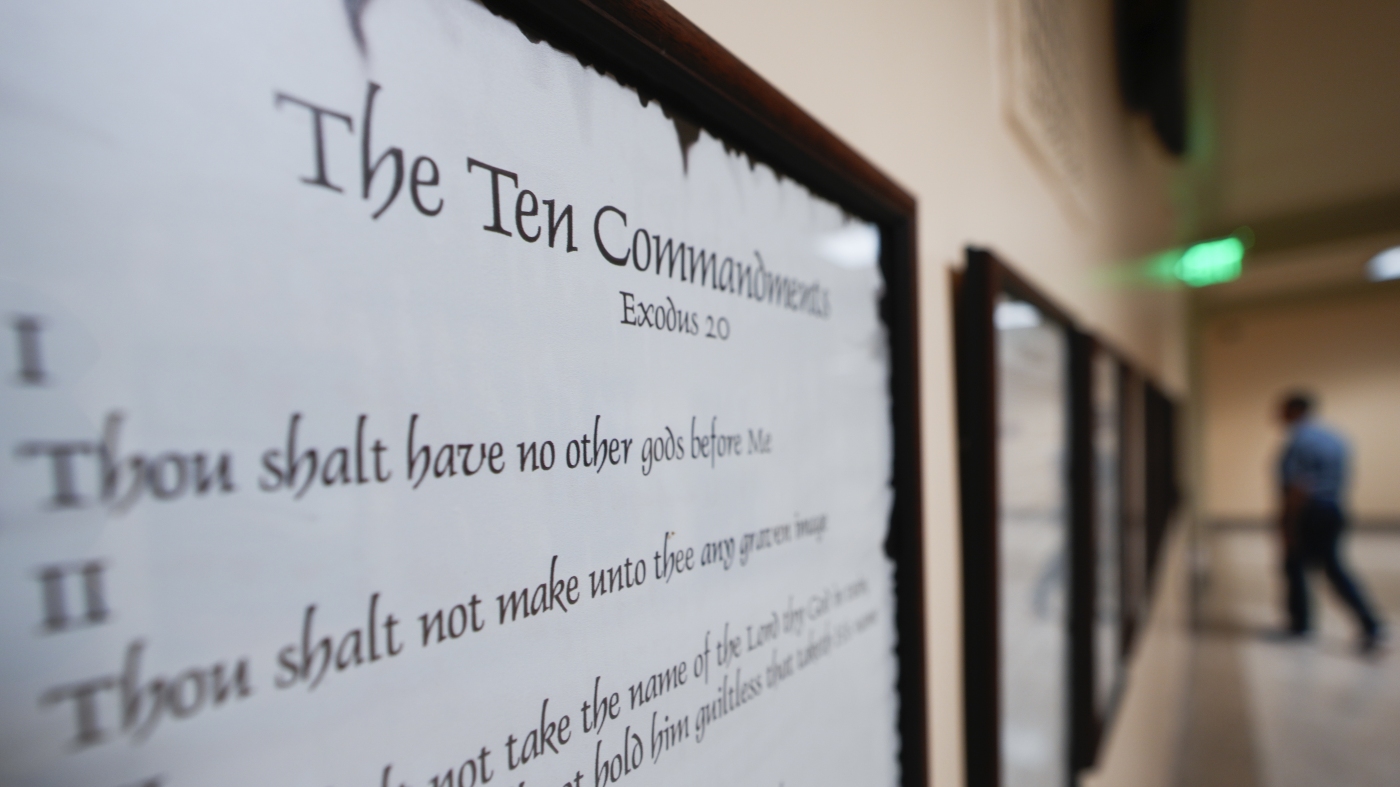Federal Court Strikes Down Louisiana’s Ten Commandments Classroom Law
In a pivotal decision, a panel of federal appellate judges declared a Louisiana law mandating the display of the Ten Commandments in public school classrooms unconstitutional. The ruling represents a significant victory for civil liberties advocates who argue that the requirement infringes upon the separation of church and state and could alienate non-Christian students.
The law, championed by several Republican leaders including former President Donald Trump, is part of a broader conservative effort to integrate religious elements into public education. Proponents claim that the Ten Commandments are integral to American legal history and belong in educational settings.
“This is a resounding victory for the separation of church and state and public education,” stated Heather L. Weaver, a senior attorney with the American Civil Liberties Union. “With today’s ruling, the Fifth Circuit has held Louisiana accountable to a core constitutional promise: Public schools are not Sunday schools, and they must welcome all students, regardless of faith.”
The debate over the scope of the court’s decision remains. While Liz Hayes, representing Americans United for Separation of Church and State, asserts that “all school districts in the state are bound to comply with the U.S. Constitution,” Louisiana officials maintain that the ruling only applies to specific districts involved in the lawsuit.
Louisiana to Challenge Ruling
Louisiana Attorney General Liz Murrill plans to appeal the decision, potentially reaching the U.S. Supreme Court if necessary. Murrill contends the ruling was intended for only a handful of districts. Republican Governor Jeff Landry, who signed the law into effect, supports the appeal, emphasizing, “The Ten Commandments are the foundation of our laws — serving both an educational and historical purpose in our classrooms.”
This case began after a lawsuit was filed by parents from various religious backgrounds, claiming the law contradicts the First Amendment. The recent appellate court decision upholds a previous order by U.S. District Judge John deGravelles, who declared the mandate unconstitutional and halted its enforcement.
The panel of judges included two appointees from Democratic administrations, a rarity in the conservative-leaning 5th U.S. Circuit Court of Appeals. The court’s alignment highlighted the ongoing legal complexities surrounding religion in public institutions.
Other states are watching closely. Arkansas faces a similar legal challenge after passing an almost identical law, and Texas awaits action from Governor Greg Abbott on related legislation.
Historically, the U.S. Supreme Court has addressed similar cases. In 1980, it ruled against a Kentucky law under the Establishment Clause, and in 2005, it found courthouse displays in Kentucky unconstitutional while permitting a Ten Commandments monument in Texas.
The future of religious displays in public schools may soon rest in the hands of the nation’s highest court, as legal battles continue to shape the landscape of education and religious freedom.





